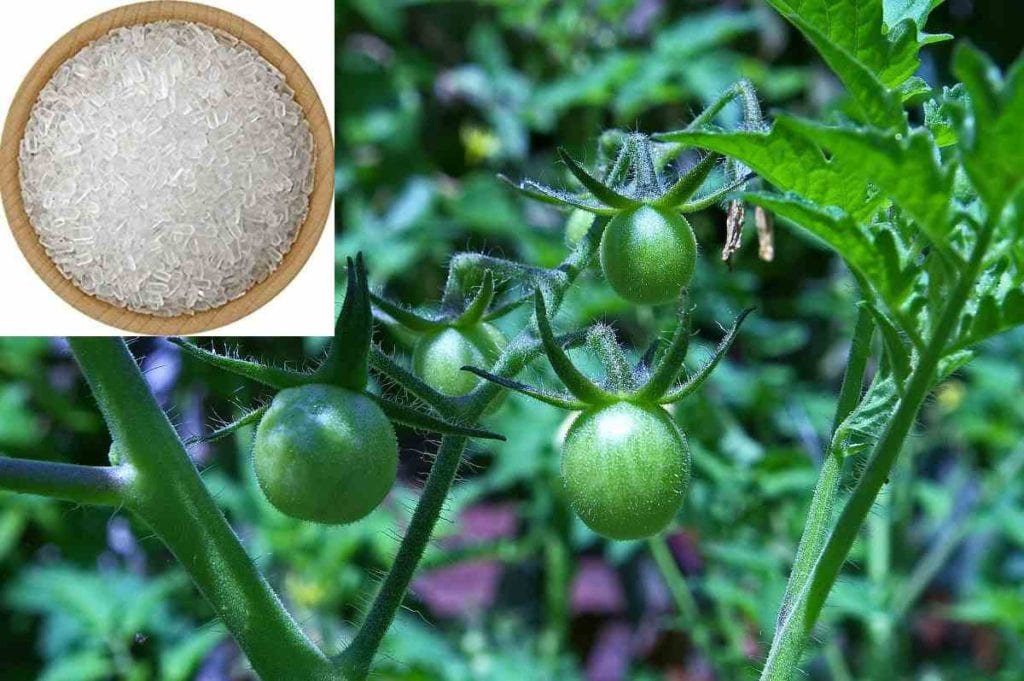Growing a beautiful farmyard over a vast area is not as easy as eating the fresh fruits of that garden. Every plant in the garden needs attention and care, so you have to invest much time and energy in cultivating them.
Most gardening lovers know about the role of fertilizers in plant growth, but only a few are aware of the effect of salts on plant growth.
Like fertilizers, some salts are also a good source of minerals like magnesium sulfate or Epsom salt. This inexpensive, beneficial salt is known for its healing property, but the farmers know about its magical effect on plants’ health.
Epsom salt contains magnesium that increases the ability to absorb nutrients. This is not the only role of magnesium sulfate. Keep reading this article to know the other benefits of Epsom salt.
Is it safe to apply salt on garden soil?
Although high salinity may disrupt the favorability of soil for plant growth, Epsom salt in appropriate amounts boosts the growth and improves health.
Epsom salt is a naturally occurring, nontoxic salt when used in the required amount. Chemically it contains magnesium and sulfate (MgSO₄). These magnesium and sulfate form ions after dissolving in water, so plants easily take up these micronutrients for their use.
Both the components of Epsom salt have individual roles in plant development. Magnesium is used by the plants for the formation of chlorophyll and prevents chlorosis (yellowing of leaves). While sulfur plays a part in protein formation.
In the light of a study conducted in the late 19s to cope with magnesium deficiency that leads to leaf fall, you can use Epsom salt. It is to keep in mind that overuse of it may disturb soil composition.
How to apply Epsom salt?

For enhancing plant growth, 1 cup of Epsom salt for a 100 square foot area works best. If you are dealing with a large yard, you can use a spreader. You can use the best salt spreader for ATV to make this task easier and get large quantities of fruits and flowers.
Magnesium sulfate can also be sprayed in the form of the solution by dissolving 1 to 2 tablespoons of Epsom salt in a gallon of water.
What are the benefits of Epsom salt?
Along with its role in chlorophyll and protein synthesis, Epsom salt has many other benefits. Some advantages are:
Increase flower and fruit growth
Research conducted in California and Colorado found that applying Epsom salt in plants fastens the rose bloom, and the pepper plant produces more fruits after magnesium sulfate treatment.
According to the study mixing one tablespoon of Epsom salt with a gallon of water and spraying it over the plant as foliar spray also increases the fruit size.
Give your plants a greener look
Magnesium is an essential micronutrient that plays a significant role in improving plant health. Magnesium deficiency depletes the green lushness of trees, and it does not perform photosynthesis effectively.
Providing appropriate amounts of magnesium to the soil and giving it proper sunlight lead to the formation of chlorophyll. High chlorophyll content gives an attractive green look to the plant.
Effective nutrient absorption
Spreading Epsom salt in the soil increases the absorption of micronutrients like nitrogen, phosphorus, and sulfur. The increase in nutrient absorption leads to the fast growth of vegetables.
Plants provided with a good quantity of magnesium are stronger and healthier than magnesium deficient plants.
Excessive magnesium in the soil may also cause a deficiency of other essential minerals, so it should not be overused.
Boost seed germination
Epsom salt containing magnesium helps to jumpstart the germination. There is no conflict that the seed needs water and oxygen to produce seedlings, but Epsom salt boosts the process.
Magnesium increases the chances of survival of seedlings by strengthening their cell wall that otherwise might die if sufficient nutrients are not provided.
Will it cause any harmful effects?

Using Epsom salt in the recommended amount if the soil is magnesium deficient does not create any harmful effect.
It is a common fact that sulfate after reacting with water from acid that increases soil pH. High pH adversely affects the plant and shunts the growth. But SO₄ of Epsom salt has no effect on the pH of soil.
Before making any type of soil amendment soil test is necessary to check the number of different nutrients. Most home gardens contain enough magnesium, so there is no need for further addition. Farmyards in a large area need such minerals farmers use to spread this salt to increase the yield of tomatoes, pepper, and other fruits.
Take away note
Magnesium and sulfur present in the Epsom salt play a vital role in plant growth. Epsom salt is involved in chlorophyll synthesis that makes the garden greener. It also promotes the absorption of other minerals like nitrogen and helps in promoting seed germination.
Growing healthy plants need much more than just one micronutrient, so before cultivating the plants, collect necessary knowledge from any valid source. Check growingherbsforbeginners.com to know how you can make your gardens greener.






